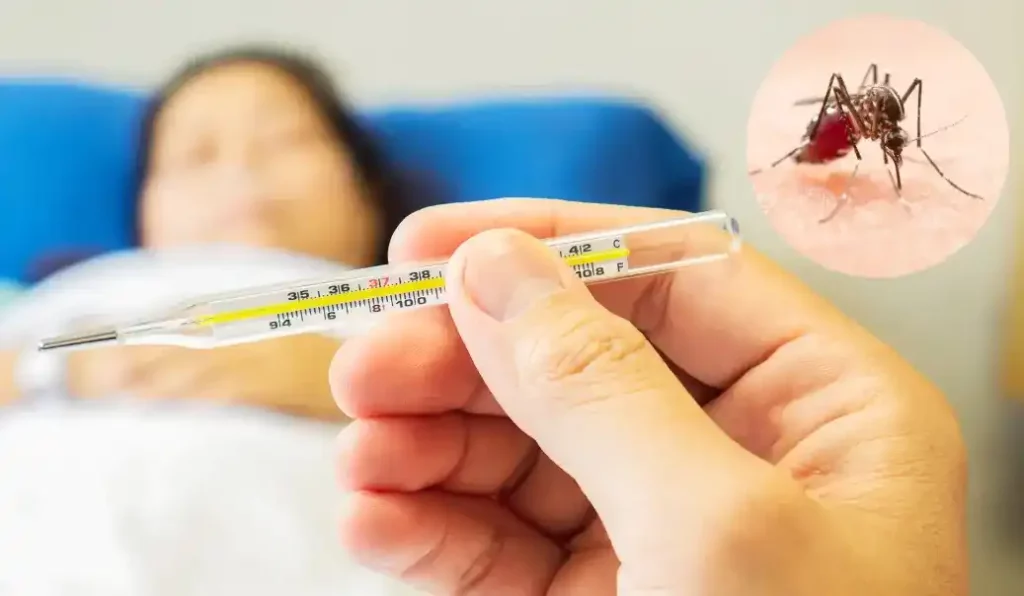How Much Time Does It Take to Recover From Dengue Fever?
Dengue fever is a mosquito-borne illness that causes severe pain, a low platelet count, and bleeding tendencies. It also leaves patients weak and tired for weeks.
During the recovery phase, dengue patients should drink plenty of fluids to prevent dehydration and consume foods rich in vitamins C and K to build strength. They should also avoid taking medicines like aspirin and ibuprofen, which can increase the risk of bleeding.
Symptoms of dengue:
The symptoms of dengue include fever, headaches, and muscle and joint aches and pains. Some people may also get a rash. You should drink lots of water to stay hydrated and take acetaminophen for the pain. You should avoid aspirin or ibuprofen, as these can make bleeding more likely.
If you develop the warning signs of severe dengue, contact your doctor right away. These include fluid accumulation, pleural effusions, a rapid drop in blood pressure, and a pale or bluish appearance of the skin (cyanosis). You can also have abdominal pain, vomiting that contains blood, and fever and chills.

Hemorrhagic forms of the illness occur in about 1 in 20 dengue infections. They can cause internal haemorrhage, shock, and even death. This is because the virus causes a dangerous increase in vascular permeability. This is more common in women, older people, infants, and those who have had a previous dengue infection.
A blood test can show if you have had dengue before. If you have, you can prevent getting a severe form by taking steps to protect yourself from mosquito bites. This includes covering your body with clothing and using insect-repellent sprays and coils. You should also get rid of places where mosquitoes can breed, such as old tyres, cans, flower pots, and pet water dishes. You should also regularly change the water in outdoor bird baths and pet water bowls.
Treatment for dengue:
There is no specific treatment for dengue fever. Medical care focuses on managing symptoms and reducing complications while the person recovers from the infection. Most cases of uncomplicated dengue resolve within a couple of weeks. Pain medications, such as acetaminophen (paracetamol), can be used to control headaches and other pain symptoms. Nonsteroidal anti-inflammatory drugs, such as ibuprofen, should be avoided because they increase the risk of bleeding.
For those who have more severe symptoms, it’s important to get medical help right away. They may need intravenous fluids and blood transfusions. They may also need to be hospitalized. In some cases, severe dengue can lead to a life-threatening condition called dengue hemorrhagic fever or dengue shock syndrome. This is usually caused by the NS1 antigen being produced in large amounts and causes plasma leakage and increased vascular permeability, which can lead to shock.
The CDC has a free course to teach physicians how to recognize the signs and symptoms of dengue fever. Assess patients appropriately and provide timely treatment. Prevention focuses on mosquito control: eliminating stagnant water sources. Use insect repellents, cover windows and doors with screens, sleep under bed nets sprayed with or soaked in an insecticide (e.g., DEET), and wear long-sleeved shirts and pants when possible. A preventive vaccine, called Dengvaxia, is recommended for people who’ve had dengue once or more and live in areas where the virus is common.
Prevention for Dengue:
Dengue is transmitted by the bite of infected mosquitoes, mainly Aedes aegypti, though other species in the same genus can also act as vectors. It is endemic in many tropical countries, including Brazil, India, Indonesia, Thailand, and the Philippines.
The onset of symptoms of dengue fever is sudden, and if not treated early enough, it can lead to severe complications like bleeding, fluid loss, rash, and nausea. To diagnose it, doctors do a physical examination, ask for your child’s travel history, and take a blood sample to check for antibodies against the virus.
Prevention of dengue includes keeping the house free from mosquitoes by using insecticide-treated nets at night and covering windows with screens. In addition to this, keep water-filled containers in your yard, garden, or house at bay by regularly removing and draining them. Also, keep discarded tyres, bottles, buckets, pool and boat covers, flower pots, toys, and garbage cans away from your home.
You should also use a repellent that contains DEET or the oil of lemon eucalyptus as directed on the product label and wear long-sleeved shirts, pants, and closed shoes whenever you go outdoors. The dengue vaccine is now available in the United States for kids and teens 9–16 years old who have already had a previous case of the disease and who live in or travel to areas where the virus is common.
Recovery for Dengue:
In most cases, the symptoms of dengue fever go away within a week or two and do not cause any lasting problems. However, some people develop severe forms of the disease, such as dengue hemorrhagic fever (DSF). DSF is a serious complication that can lead to internal bleeding, damage to the lymph and blood vessels, and failure of the circulatory system. The condition is more common in children and adults who have had a previous dengue fever infection or have a weak immune system.
To improve your chances of a fast recovery from dengue, drink plenty of water or oral rehydration solutions, and get lots of rest. You can also take over-the-counter pain relievers with acetaminophen to help manage the headaches and aches from the illness. Avoid taking aspirin or ibuprofen, which can increase the chance of bleeding.
A healthy diet and regular exercise can also help speed up recovery from dengue. Try including fruits and vegetables that are high in vitamins and minerals, such as bananas, pomegranate, guava, papaya, and oranges. Also, eat foods that are easy to digest, such as ginger and turmeric. It is also advisable to drink coconut water, as it is rich in electrolytes and provides your body with essential minerals. In addition, it is important to keep up with your regular hygiene routine and eliminate mosquito breeding sites around the house.

